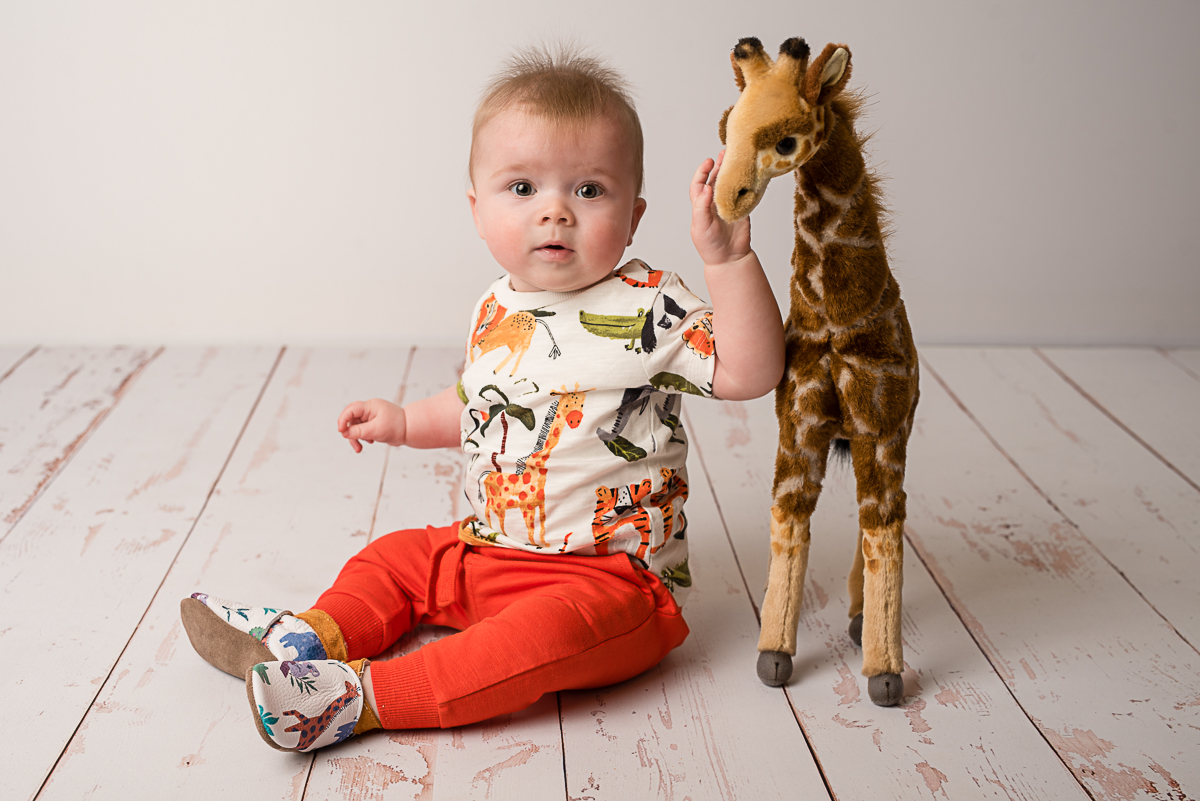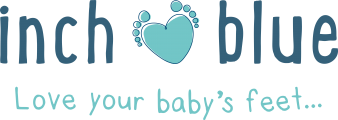Baby's First Brush: When Do You Start Brushing Baby's Teeth?

When it comes to caring for your new baby there’s so much for parents, carers and grandparents to think about in those early years of development. First thoughts are always about keeping babies safe, well and thriving. Their nurturing and emotional needs are just as important as the physical ones which seem more obvious, yet a key part of baby’s development that is often overlooked is oral hygiene for babies.
Perhaps this is because new parents have lots of questions about when you should start brushing baby’s teeth. In fact, when to start dental care for infants is probably one of the least talked about aspects of early years care. Is it as soon as a child’s first baby teeth come through? What sort of toothbrush should you choose for babies to take care of their delicate gums and what toothpaste is best for baby teeth? Don’t worry. At Inch Blue we care about every aspect of baby’s development from their first teeth to their tiny toes, so we’ve got you covered here.
The Importance of Early Dental Care
The importance of healthy habit forming in early years shouldn’t be overlooked. Establishing routines in the first weeks, months and years is all part of healthy childhood development. So, putting early tooth brushing into practice with your child sets firm foundations for childhood dental hygiene that should help form healthy habits that can last a lifetime.
It’s never too early to start talking about keeping baby’s mouth clean. Wiping milk away with a cloth after feedings and before bedtime from your baby's gums removes leftover milk and introduces them to the feeling of having something in their mouth. You can also talk about the importance of brushing for healthy and strong teeth as soon as baby is weaning with the help of books, games, role play and setting the best example by showing baby how you clean your teeth too. This sets your child up for success as you explain the importance of taking care of baby teeth with regular, thorough cleaning. Keeping teeth clean prevents cavities from the start and helps to establish strong healthy, disease-free gums.
Getting oral health right in early years, from eating healthy natural foods, avoiding sugary drinks and snacks, to sticking to milk and water gives your child a great start in life as good oral hygiene has proven links to general health and wellbeing.
When to Start Brushing Your Baby's Teeth
When it comes to knowing when it’s time to start brushing your baby’s teeth these are the signs that indicate your baby is ready.
If you’re breastfeeding, you might be only too aware when you feel the first tooth. Other signs you might notice include increased dribbling and baby putting things in their mouth to chew and relieve those annoying feelings of teething pains as the first tooth tries to break through the gum. Careful feeling around inside their tiny mouth with clean fingers can also help you to discover if a baby tooth has popped through.
What Age Do Babies Teeth First Grow?
The age when babies develop their first tooth depends on each individual child but broadly speaking paediatric dental experts anticipate signs of dental development between the age of 6 and 12 months.
You can start cleaning your baby's teeth as soon as their first tooth erupts. Don't worry if their teeth haven't come in yet by their first birthday - it's still within the normal range.
If by the age of 18 months your child has failed to develop a single tooth it’s advisable to seek professional advice from your dentist to rule out any underlying conditions.
How to Brush Your Baby's Teeth
When it comes to starting to clean baby teeth it’s vitally important to choose the right tools for the job. For tiny teeth, there are a variety of baby toothbrushes on the market with soft bristles and small heads that are specifically designed for babies. Choosing designs made from natural materials that will be pleasant and easy for baby to use as well as fun colours and child- friendly designs will help them engage with this daily task and embrace it as a healthy habit from a young age.
It's best to sit your baby on your knee or stand behind them, tilting their head back gently. Show them how to move the brush for soft gentle strokes, brushing all the surfaces of their teeth using small circles.
Should you Choose Fluoride or Non-Fluoride Toothpaste for Baby's Teeth?
When it comes to toothpaste there is a debate about whether to choose fluoride or non-fluoride as the safest option for baby teeth.
One school of thought is that fluoride in the water, combined with fluoride in toothpaste can result in fluorosis which causes white or brown speckles on the teeth due to too much exposure to fluoride in early years. Many dentists suggest switching baby to a fluoride toothpaste past the age of one when they can spit and prevent the excess build-up of fluoride. If you’re unsure, ask your dentist for advice. Baby should take a trip to the dentist in the first year and there’s certainly no harm in starting brushing without paste to establish the habit early on.
Step-by-Step Guide To Brushing Baby Teeth
We’ve summarised how to brush your baby's teeth for you to help make tooth brushing a positive experience. You should be supporting and supervising your child up until the age of 7, after this, they should be OK to follow your fun established routine by themselves.
- Try a tiny slick of toothpaste for babies and toddlers up to 3 years old
- Choose a pea-sized amount for children aged 3 to 6 years
- Begin to brush your child's teeth more thoroughly, covering all the surfaces of the teeth at least twice a day: before bed and perhaps after breakfast.
- Encourage children who aren’t keen by making it into a game or brush your own teeth at the same time as your child does theirs.
- Brush a baby's teeth most easily by sitting them on your knee, with their head resting against your chest.
- For an older child, stand behind them and tilt their head backwards.
- Brush baby’s teeth in small circles, covering all the surfaces, and encourage your child to spit out toothpaste afterwards.
Taking care of baby’s teeth
Hopefully we’ve built a clearer picture of not only when to start brushing baby teeth but how to go about it with plenty of tips and hits to encourage you to prioritise your baby's dental health for the best possible start in life. It’s not always easy and can be challenging but if you establish the habit early on, brushing baby’s teeth can actually offer relief from the pain of teething when their tint teeth come in and making it fun can be part of a relaxing and reassuring morning and bedtime routine with your child.
Enjoy important milestones with Inch Blue
Brushing your baby’s teeth is just one of the challenges to master as new parents. The baby to toddler timeframe is full of important milestones like taking their first steps and learning to walk. Here at Inch Blue, our newborn baby booties in soft leather and suede are here to help you every step of the way. Non-restrictive but fully supportive to keep little feet cosy and snug, our baby boy prewalker shoes and baby girl prewalker shoes, are non-slip to help babies feel and grip the ground in the cutest bold designs and bright colours to suit every little one who’s trying to find their feet. Our baby shoes take care of your baby’s feet just as tenderly and professionally as you do their teeth.
